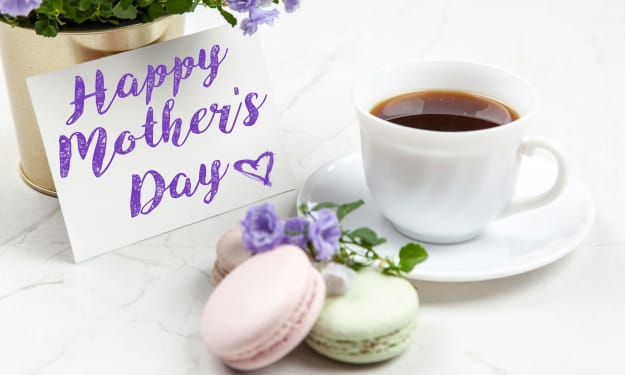Dump the drama, not the trauma
Empathy takes a backseat in the age of apathy

Navigating the vast realm of the internet requires a lighthearted approach as attaching importance to online content posted by strangers is a recipe for unnecessary distress. Despite being well aware of this principle, I found myself caught off guard during my daily social media scroll when a discussion on the concept of "true friendship" struck a chord.
On January 29, Elmo, the beloved “Sesame Street” character shared a caring inquiry on X, reaching out to friends about the state of their lives. Within moments, a flood of users hounded the post with their personal issues. While I question the suitability of the internet as the platform for airing one's deepest secrets, I, for one, don't find it bothersome.
In the aftermath of this widely shared incident, the debate around the idea that friends shouldn't endure "trauma dumping" has sparked disagreement. Yet, it seems that people's views on what constitutes "trauma dumping" vary, and in this particular case, are somewhat distorted.
Naomi Torres-Mackie, head researcher of The Mental Health Coalition, defines "trauma dumping" as the sharing of unsolicited traumatic experiences with someone without regard to its impact. This often leaves the listener feeling overwhelmed or traumatized themselves.
However, a common misunderstanding persists, blurring the lines between "trauma dumping" and simple venting. It would appear that in our haste to avoid further harm, we have also conditioned our empathy and desire to form genuine relationships with others to remain confined within. Simultaneously, we're shaping a community that has relinquished the very core it once thrived upon – authentic human bonding.
“Friendships are, by their very nature, made of friction,” Rosie Spinks writes in her blog What Do We Do Now That We’re Here.
She defines this “friction” as more than just disrupting one’s routine or sacrificing a part of one's life to assist a friend; it's also acknowledging the need for a type of help that can't be purchased or arranged independently.
But with the advent of technology and the occurrence of the pandemic, this “friction” was violently taken away from our grasp.
While we may have triumphed over a devastating pandemic, the isolation we experienced as a result of coping with loss and uncertainty has contributed to a growing epidemic of loneliness that removed all this necessary friction to foster healthy friendships.
Since when did we stop confiding in friends?
The excuse of prioritizing oneself in a friend’s time of need is a manifestation of one’s selfishness. Delving into this phenomenon, culture editor of Coveteur Andi Eisen provides a robust explanation. Ultimately, it all distills down to the wave of toxic self-care propagated by influencers and our algorithmic feeds.
In the ceaseless, morally questionable discourse of "wellness" spurred by capitalism on top of the debilitating cost of living in the Philippines, everything, including time, becomes commodified.
The campaign of ‘self-focus’ is a perilous movement that not only directly affects the oppressed, but also promotes a detrimental mindset of prioritizing our own pain and suffering over others. This mindset inevitably influences our behavior towards friends, leading many individuals to succumb to the notion that the world centers around their personal experiences.
As of 2021, the Daily Tribune report showed that 60% of Filipino laborers experience a sense of being overworked. Hence, we exert considerable effort to dedicate minimal time to reconnecting with our loved ones, attempting to make up for the time we've overlooked our own well-being. In doing so, we unintentionally sideline our friends, finding ourselves meticulously scheduling every fleeting human interaction and caught up in the demands of belonging to an overworked and underpaid generation–compelled to distance ourselves from friends seeking solace to preserve our time and energy. Indeed, time has transformed into a valuable currency.
The toxic individualism of America has seeped into the Filipino ethos, not just through colonialism but also via our phone screens. We now find ourselves yearning to emulate their ways, a departure from the Filipino reputation for being family-oriented and rooted in the Bayanihan system. The relentless "grind" has contaminated our principles and done the opposite of wonders on our connections with those dear to us.
While burnout and emotional exhaustion may justify a deliberate withdrawal from social engagements, the question arises: is it healthy and considered “self-care” for an entire generation to isolate themselves from friends? Ultimately, the blame rests significantly on the ruling class that pushes the working class to the brink, disregarding their human limits and susceptibility to exploitation, driven by the necessity to support their families.
Kristin Wong, a journalist, narrates her personal encounter with intentional seclusion from friends, masked as setting boundaries, as a means of constraining herself from forging significant connections. In the midst of global chaos and unrest, there's a frequent mix-up between self-preservation and self-sabotage. Her personal journey resonates deeply, mirroring the broader societal narrative of being intoxicated by aspirations for the American dream while concurrently experiencing a depletion of humanity.
There’s no shortage of debate about friendship, as Aristotle noted in Nicomachean Ethics. Our lives take diverse paths, and each person's connection with friends is distinct. The way we express love towards those close to us defines an unparalleled aspect of humanity that cannot be duplicated by anyone. Yet, those who understand the essence of love, who have experienced its reciprocal warmth, share a common thread with kindred spirits – and that thread is empathy.
The perpetuation of humanity hinges not on our egos and self-preservation but on our interconnectedness. While it's undeniable that confronting unfair circumstances can lead the best of us astray, it's essential to recognize that our present conditions should not exclusively shape our fundamental character. Empathy is boundless, and it should be our life's purpose to defy the system's attempts to shape our identity.
About the Creator
Yvounne Bermudo
Yvounne Bermudo is a fourth-year journalism student at Polytechnic University of the Philippines.






Comments
There are no comments for this story
Be the first to respond and start the conversation.